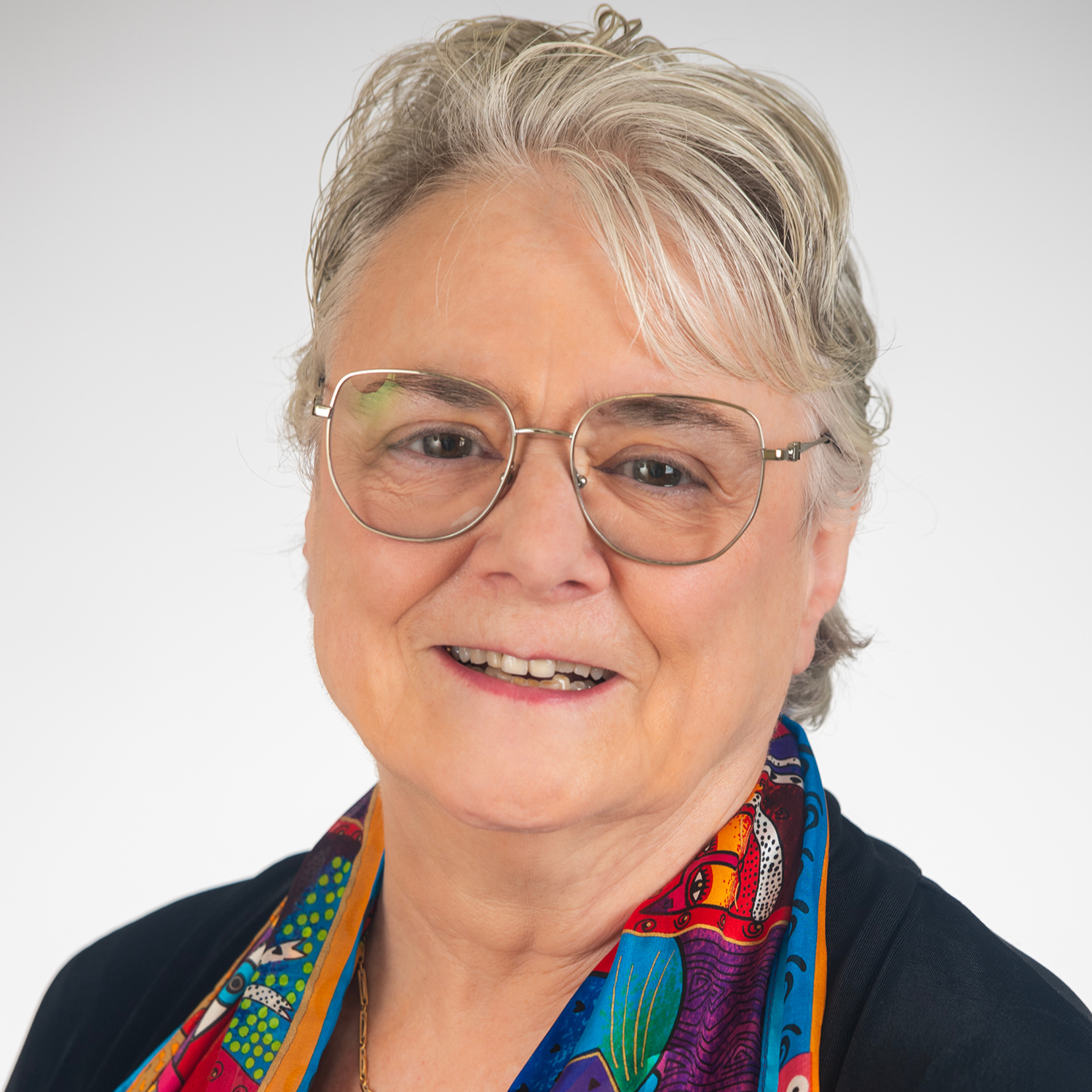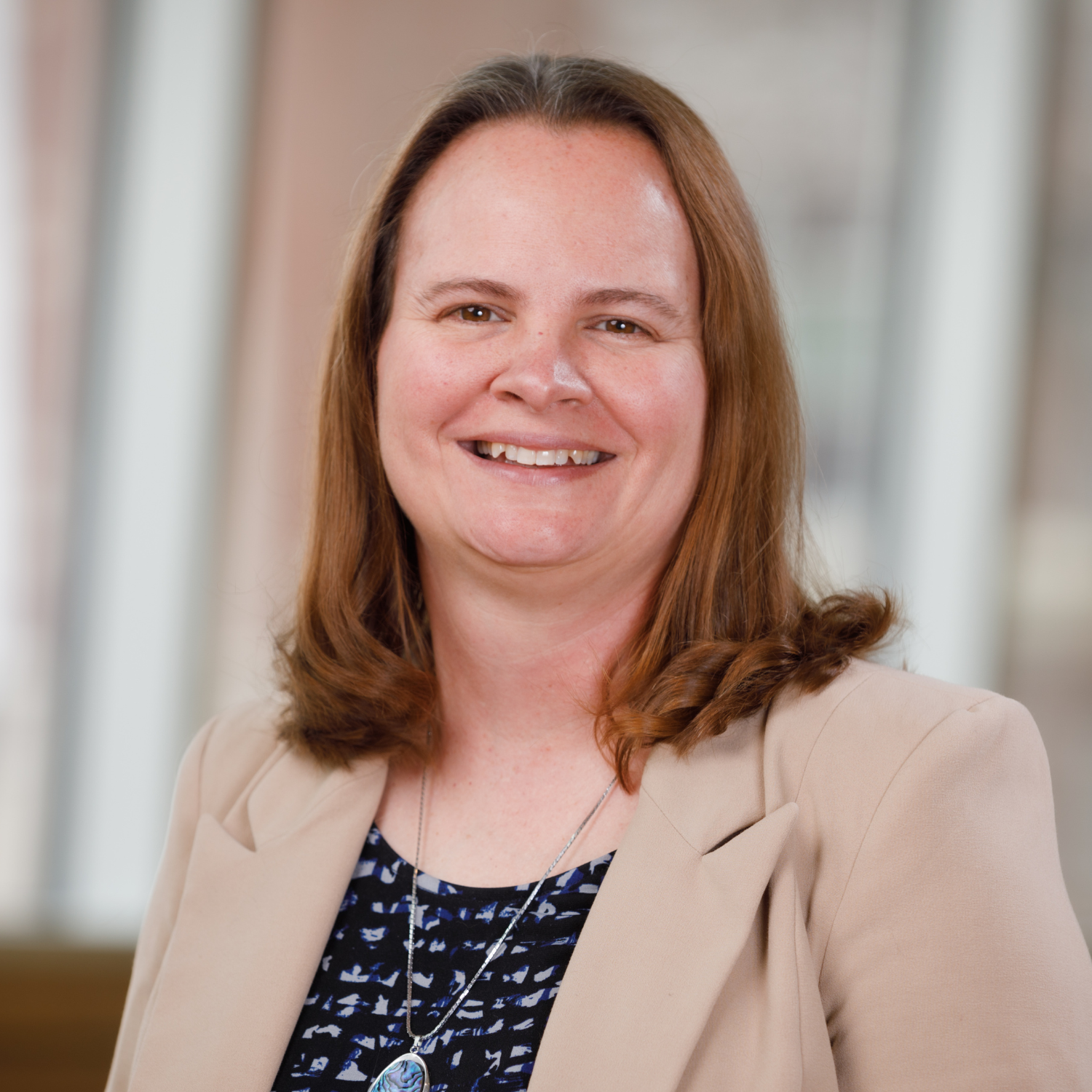Current Award Recipients
Distinguished Alumnus Award

Kathy Kay Hartford Svoboda, BS, MS’79, PhD’82, Regents Professor, F(AAA), F(ARVO), F(AAAS)
Kathy Hartford Svoboda was born and raised in Hershey, Nebraska. She is a 6th generation Nebraskan and the first person in her family to pursue graduate education. Kathy’s education is a Nebraskan product that included a BS from UNO followed by an MS (genetics) and PhD (anatomy) from UNMC. Her MS advisors were Drs. Jim Eisen and Warren Sanger. In 1979 UNMC did not offer a Ph.D. in human genetics. In 1980, Drs. Nora and William Kenneth (Ken) Metcalf recruited Kathy and supported her PhD education with a NIH T32 grant obtained for the Anatomy Department. She had the privilege of learning anatomy from expert teachers including Dr. Edward Holyoke in his 50th year of teaching anatomy. She joined Dr. K. Sue O’Shea’s research group and focused on the role of the cytoskeleton during early eye development. She completed the PhD in two years and defended in August 1982. That spring (1982) she met Dr. Elizabeth D. Hay at the American Association of Anatomist’s annual meeting. Dr. Hay invited Kathy to join her laboratory at Harvard Medical School to continue her training as a postdoctoral fellow. This was a wonderful opportunity to expand Dr. Svoboda’s education and research experience. Dr. Svoboda and her family moved to Boston to work with Dr. Hay’s group. The postdoctoral project was another eye project that focused on cell-extracellular matrix interactions and signal transduction using the embryonic cornea model. She also worked with Dr. Bjorn Olsen’s group.
Dr. Svoboda joined the Anatomy and Neurobiology Department at Boston University School of Medicine as an assistant professor in 1987. She taught gross anatomy to medical students and cell biology to graduate students while being a pioneer in confocal microscopy. She was promoted to associate professor in 1994. Dr. Svoboda has always enjoyed close ties with the Ophthalmology Departments and has held adjunct professorships at Boston University School of Medicine and the University of Texas, Southwestern Medical School.
The next move was to Texas, where Dr. Svoboda joined the faculty at Baylor College of Dentistry as an associate professor in 1998 and was promoted to professor with tenure in 2001. She was awarded the distinction of Regents Professor in 2009.
Throughout her career she has taught medical, dental, and graduate students a variety of subjects including gross anatomy, histology, embryology, cell biology and specialty research techniques. Dr. Svoboda started teaching as a graduate student assistant from 1980 to 1981 and continued teaching gross anatomy from 1985 to 1997. In addition to teaching professional students’ gross anatomy, she has always been involved in teaching graduate students cell biology. She has been instrumental in developing and organizing three cell biology courses and was the course director for the first cell and molecular biology course taught to Dental students at the College of Dentistry. As a developmental biologist, Dr. Svoboda has also taught human embryology for over 35 years.
Dr. Svoboda has maintained a relatively small laboratory group with 2-3 students and 1-2 technicians. She has also welcomed temporary summer professional students (medical and dental) and high school or undergraduate students. Occasionally she has had postdoctoral fellows, but most mentoring has centered around instructing her graduate students. Dr. Svoboda encourages her graduate students to find projects that they can pursue with passion to become experts in the subject. This has led to students with many different projects that have cell-matrix interactions and signal transduction during tissue/cell differentiation as a core theme.
Dr. Svoboda has been responsible for millions of dollars obtained from federal and foundational sources for a variety of projects. She was continuously funded by NIH and other sources since her postdoctoral fellowship in 1983 until 2017. She has been the PI or co-PI on 25 grants.
She continues to be a co-investigator on current grants. Dr. Svoboda has also been highly successful in obtaining funds to improve the institutional infrastructure by purchasing major equipment. Dr. Svoboda has had grants for two confocal microscope systems, an ICP-mass spectrometer, a laser capture microscope, a quantitative PCR instrument, a decalcification microwave system and a bioanalyzer funded from NIH, NSF and the Baylor Oral Health Foundation. Dr. Svoboda has also served on the NIH and NSF study sections, providing her with insight into the necessary elements of successful grant applications. The record of her grants and publications are in Orchid.
Dr. Svoboda has also served the greater scientific community through service to national scientific associations. The American Association for Anatomy has been her home scientific organization. She met her postdoctoral mentor, Dr. Elizabeth Hay at the 1982 meeting and interviewed for her first job with Dr. Alan Peters in 1986. As an anatomy faculty member, she has been continually active in this association throughout her career by serving on many committees that led to being elected to the executive board in 1997 and then as co-program chair (1997-2003). She served as the Vice president from 1999-2001 and elected to President in 2003. The President elect, President and Past President terms are 2 years each, so Kathy continued to serve the American Association for Anatomy until 2009. As co-program chair she worked to create an intimate environment for anatomical professionals while maintaining the advantages of being part of a large scientific meeting. Dr. Svoboda is also active in the Association for Research in Vision and Ophthalmology and the American Society for Cell Biology. She is a fellow of three scientific societies: the American Association for Anatomy, Association for Research in Vision and Ophthalmology and American Association for the Advancement of Science.
Mid-Career Achievement Award

Elizabeth Beam, PhD'14, RN
Dr. Elizabeth Beam is an Associate Professor at the UNMC College of Nursing. She has worked on the HEROES emergency preparedness grant at the College of Nursing since 2005. In that role, she became involved in the Nebraska Biocontainment Unit and was the educator for the unit in 2014 when Ebola Virus Disease was treated in the United States. Dr. Beam has gone on to do further research on healthcare worker behaviors and respiratory protection for situations like the COVID-19 pandemic. Dr. Beam is known on the UNMC campus as an innovator with her Beam Helmet Team project which is prototyping a better powered air purifying respirator. She is also an Education Researcher for the UNMC Interprofessional Academy of Educators when she helps UNMC faculty make their teaching role into scholarship.
Early Career Achievement Award

Chun-Kai Huang, PhD'15, MS, PT
Dr. Chun-Kai Huang, PhD, MS, PT, is a board-certified Physical Therapist from Taiwan, with a distinguished background in education and research. Since 2019, Dr. Huang has served as an Assistant Professor and Graduate Faculty member in the Department of Physical Therapy, Rehabilitation Science, and Athletic Training at the University of Kansas Medical Center (KUMC). He also holds the position of Adjunct Assistant Professor in the School of Physical Therapy at Chang Gung University (CGU) in Taiwan.
Dr. Huang began his academic journey with a BS in Physical Therapy from CGU in 2005. He continued at CGU to earn an MS in Rehabilitation Science in 2007. In 2015, he completed his PhD through the MSIA program (Physical Therapy - Biomechanics Focus) at the University of Nebraska Medical Center (UNMC). Following his doctoral studies, Dr. Huang worked as a Post-Doctoral Research Associate in the College of Allied Health Professions at UNMC and as a Post-Doctoral Research Fellow at the Institute for Rehabilitation Science and Engineering at Madonna Rehabilitation Hospitals before joining the faculty at KUMC.
With over seven years of teaching experience in the United States, Dr. Huang has taught courses such as Biomechanics at the UNMC/ UNO (2016-2018), and Research in Evidence-Based Physical Therapy Practice, Developing Research Aims in Rehabilitation Science, and Research Seminar at the University of Kansas Medical Center (2020-present).
Dr. Huang's research focuses on gait, postural control, and balance in older adults and patients with neurodegenerative diseases. His contributions have been widely recognized, including being a finalist for the prestigious NIH workshop for Training in Grantsmanship for Rehabilitation Research (TIGRR), serving on an NIH study section as an Early Career Reviewer, and receiving awards such as the American Society of Biomechanics Faculty Research Travel Grant and the KU Diabetes Institute Professional Development Award. To date, Dr. Huang has authored over 25 scientific publications and delivered nearly 40 conference presentations. He is an active member of several professional societies, including the American Society of Biomechanics, the American Physical Therapy Association, and the American Congress of Rehabilitation Medicine. Additionally, he serves as a reviewer for nine peer-reviewed journals.
Service to others is a central aspect of Dr. Huang's professional life. He has mentored numerous students across various institutions and served on five PhD committees. Currently, he chairs the School of Health Professions Research Committee at KUMC. He has also played a crucial role in fostering international collaboration, facilitating partnerships between UNMC and CGU's Physical Therapy programs, and building connections between KUMC and CGU.
Through his dedication to teaching, research, and service, Dr. Huang has made significant contributions to the field of Physical Therapy and Rehabilitation Science, impacting communities locally, nationally, and internationally.